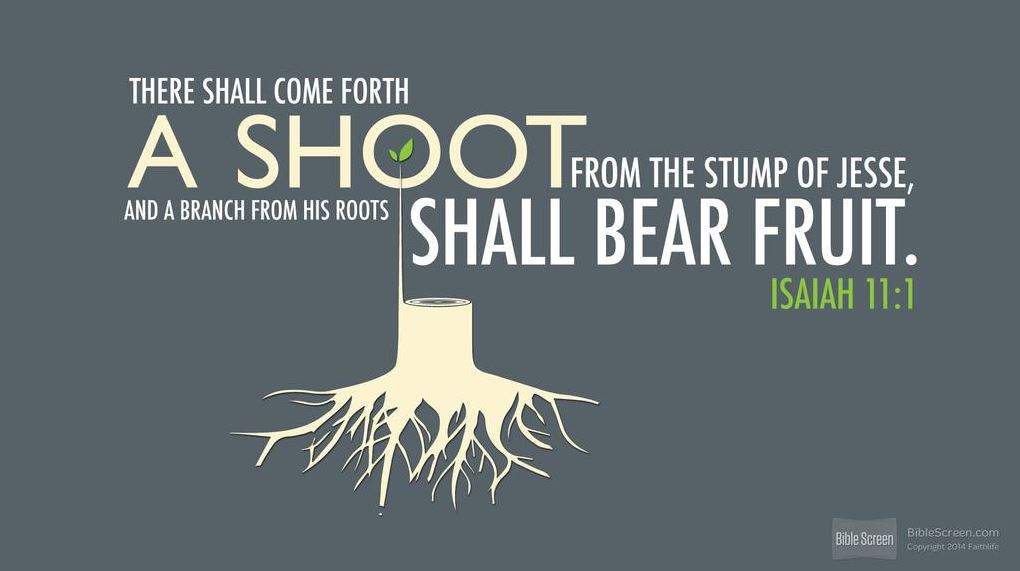Listen on Mix-cloud
Isaiah 11 : 1 -10
In his Pensées (Thoughts) Blaise Pascal is most emphatic of the sublime role of Israel’s prophets in announcing the eventual coming of Messiah for “some four thousand years” of the foretelling of his Advent. Pascal’s sentiments are warmly personal toward “my Saviour who came to earth to die and suffer for me in the time and circumstances foretold.” The most important birth in human history is not related as mere fact or event in time but as a personal gift of grace and joy from God (Luke 2:10, “good news of a great joy,” meaning Jesus).
It is fascinating to trace the forecasts of the arrival of the Redeemer of the world and to think that his coming has been foretold for millennia in a variety of ways and figures, and under the various titles that will describe his person and offices. The pulse and drumbeat of the Promise increases as we scan the details of his assured arrival. The Bible in its entirety is the Book of Christ. It is so enticing to capture the developing prophetic message of the Scriptures concerning the Lord Jesus; so arresting to apprehend God’s pledge and preparation to retrieve us to himself through the adorable God-Man – the uniqueness and sufficiency of his purpose of rescue from the mire of sin and prospect of doom.
The Old Testament is a library of treasured documents of anticipation of the time and circumstances of our glad deliverance from servitude to evil and alienation from our Maker. There is within it the throb and thrill of union with our soul’s lover and friend and the cancellation of our grim and deserved death as penalty for our rebellious breach with the Triune Almighty One. The Offended forgives and removes our offenses through his substitutionary suffering and death. Every intimation concerning the Messiah is alluring and overwhelming in its significance. Aspects of his nature or character, his undertaking on our behalf, are too colossal for our comprehension to adequately grasp. We are caused to review and ponder the assertions of the Scriptures over and over again, to contemplate them at depth.
The things averred by Isaiah about Jesus, for instance, are riddles that incite a sense of profound mystery and delicious intrigue. In verse one the Messianic figure is referred to as a shoot “that will come up from the stump of Jesse”, the father of King David. The Christ will emerge from Royal background, and yet a Royalty that far exceeds mere earthly dignity (great David’s greater son). This pre-eminence is indicated in verse ten where Messiah is described as the Root of Jesse, by implication the eternal source of David’s regal dignity. And so the human and divine natures of Israel’s Redeemer are predicated in the One who is both Root and Shoot. The Lord Jesus is both the Base and the Branch of the Royal tree; its producer and product of the Lord’s saving grace, the fruit of divine efficiency. How beguiling this wondrous insight happens to be.
How well-equipped our Saviour happens to be: “The Spirit of the Lord will rest on him – the Spirit of wisdom and understanding, the Spirit of counsel and of power, the Spirit of knowledge and of the fear of the Lord” (v2). The Lord Jesus is the ordained, resourced, and reliable salvager of lost and believing humanity. Like Blaise Pascal we may be able to confess his lovely and endearing words: “I stretch out my hands to my Saviour.”
RJS


 RSS Feed
RSS Feed
